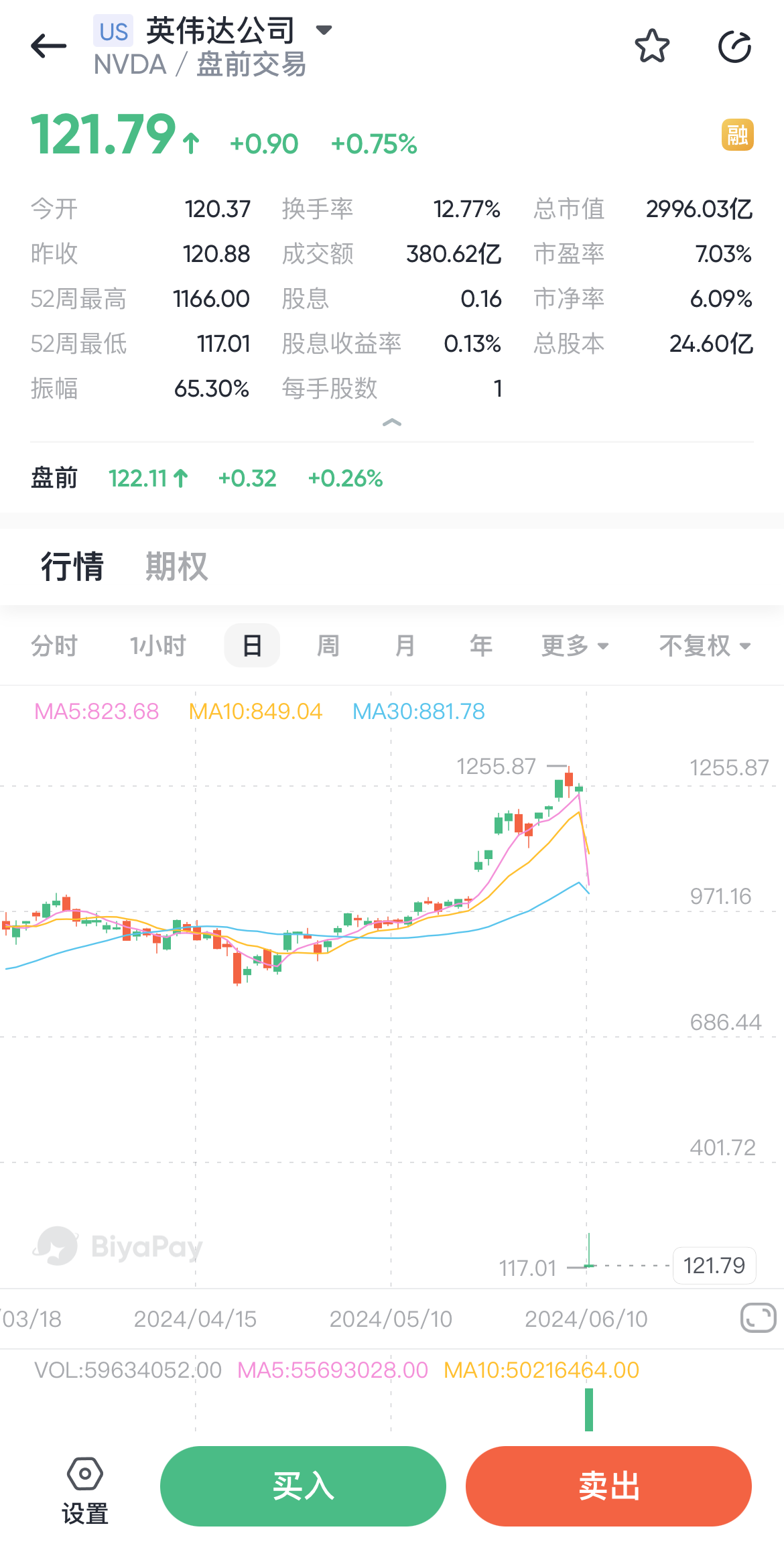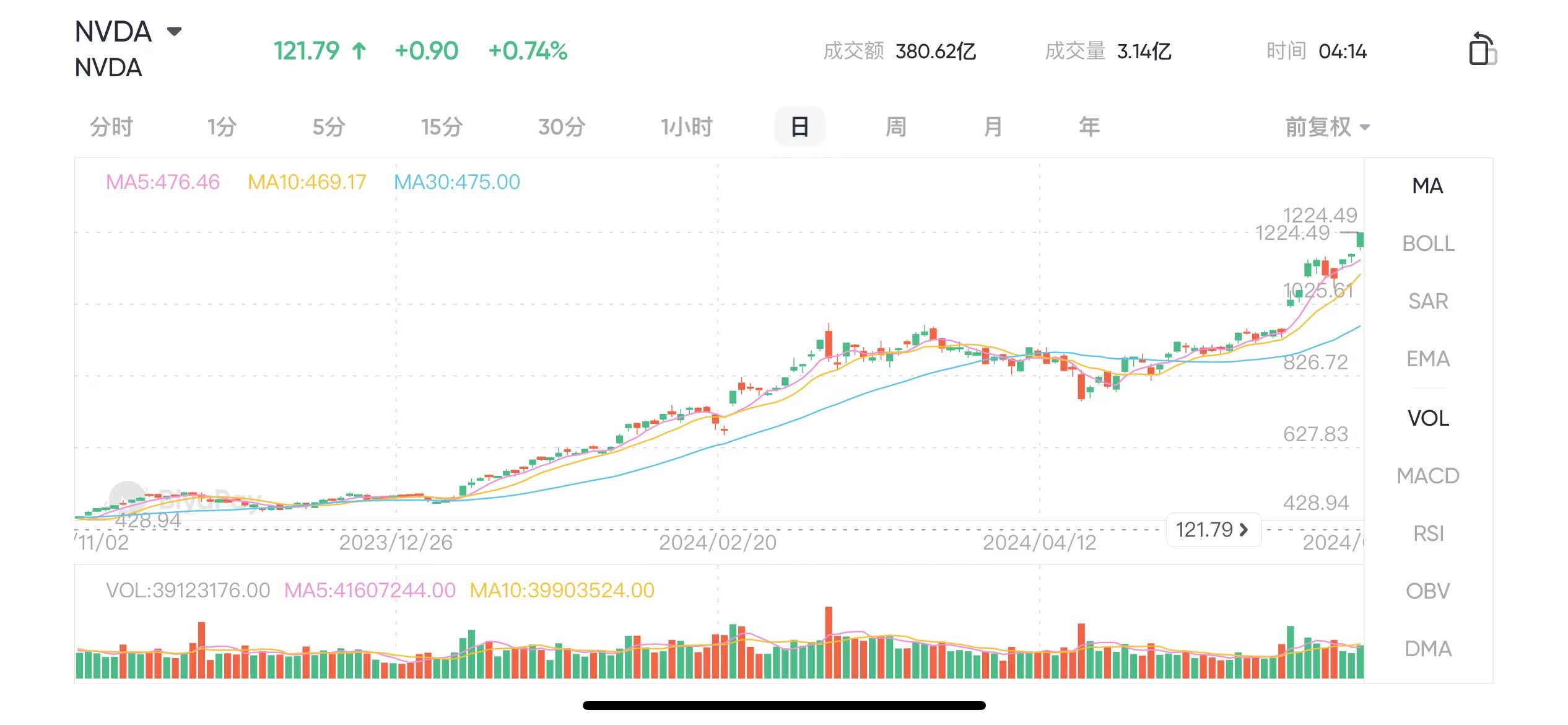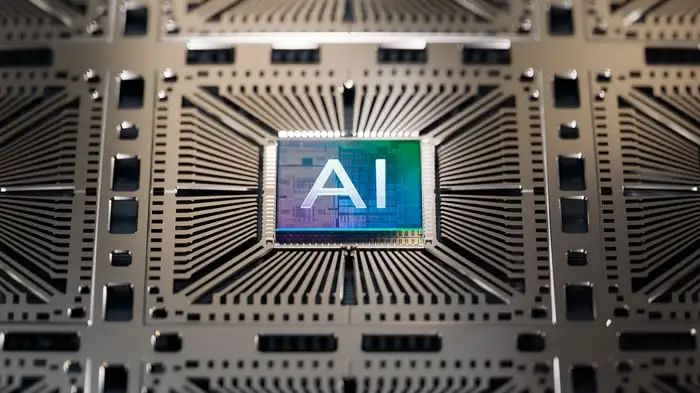- Remittance
- Exchange Rate
- Stock
- Events
- EasyCard
- More
- Download
NVIDIA Faces Antitrust Investigation: A $35.5 Billion Drop in Market Value
On June 6th, it was reported that the US federal regulatory agency had reached an agreement allowing an Anti-Trust investigation into Nvidia. This news was like a bombshell, quickly causing a huge shock in the technology industry.
On June 6th local time, NVIDIA’s stock price plummeted, falling by about 6% from its highest point. As of the close, NVIDIA’s stock price fell by 1.18%, and its market value returned to below $3 trillion. Its market value evaporated by about $35.50 billion (about RMB 257 billion) overnight, and it continued to fall after the market closed. Its market value was immediately surpassed by Apple just one day after it surpassed Apple.

From a small chip design company to the invention of GPU (graphics processing unit), NVIDIA quickly emerged in the gaming market. Later, it launched the CUDA platform and Omniverse simulation platform, which further consolidated its leading position in the field of artificial intelligence.
However, NVIDIA’s rise is inseparable from the development of artificial intelligence. Since the introduction of the GPT series of artificial intelligence models, NVIDIA, as the main supplier of AI chips, has become one of the biggest beneficiaries of this revolutionary change. Globally, major technology companies are competing to purchase NVIDIA’s AI chips, making it almost monopolized in the AI chip market, occupying 70% to 80% of the market share.
It is precisely NVIDIA’s dominant position in the AI chip market that has caused its stock price to soar in the past year. We can see from the global multi-asset trading tool BiyaPay App that NVIDIA’s stock price has more than doubled in 2023, and has risen by 130.01% since the beginning of this year.

However, just as NVIDIA was in the limelight, the US government’s Anti-Trust investigation announcement suddenly came.
In the US, Anti-Trust investigations have always been the sword of Damocles over the heads of major companies. This sword is sharp and ruthless, regardless of industry or branch size. As long as there is suspicion of monopolizing the market, it may face severe investigation and punishment.
NVIDIA under investigation by US Department of Justice
According to multiple US media reports, the Federal Trade Commission (FTC) and the Department of Justice will launch an Anti-Trust investigation into Microsoft, Open AI, and Nvidia, examining the influence of these powerful companies in the artificial intelligence industry. The New York Times first reported on this investigation, and a person familiar with the situation also confirmed to CNBC that the investigation does exist.
According to sources, the FTC will lead the investigation into Microsoft and Open AI, while the Justice Department will focus on Nvidia and the investigation will focus on the company’s behavior rather than merger activities. The US Department of Justice and the Federal Trade Commission reached an agreement in the past week and are expected to finalize it in the coming days.
This agreement means that the US Department of Justice and the Federal Trade Commission are strengthening their scrutiny of artificial intelligence. For a period of time, Nvidia, Microsoft, and Open AI largely avoided the impact of US government Regulatory Scrutiny, but this situation has begun to change.
“In the field of artificial intelligence, we need to identify potential problems from the beginning, rather than correcting deep-rooted problems many years later,” said Federal Trade Commission Chair Lena Khan in February.
It is understood that NVIDIA is currently the main independent GPU (graphics processing unit) manufacturer, and GPU is currently the main artificial intelligence chip. Taking the Chinese market as an example, market consulting firm IDC data shows that in 2023, the market size of China’s acceleration chips will reach nearly 1.40 million, and GPU cards will occupy 85% of the market share.
It is reported that the news of the upcoming Anti-Trust investigation came a few days after a group of current and former Open AI employees published an open letter on Tuesday expressing concerns about the rapid development of the AI industry, despite the lack of supervision and whistleblower protection for those willing to speak out.
AI companies have strong financial incentives to avoid effective supervision, and we do not believe that customized corporate governance structures are sufficient to change this, “the employees wrote, adding that the company” currently has only a weak obligation to share some of this information with the government, and no obligation with civil society. We do not believe they can all be trusted to share voluntarily.
As of now, Open AI has not responded to requests for comment. Microsoft and Nvidia declined to comment.
Anti-Trust surveys in history
In fact, Anti-Trust investigations are not uncommon in US history.
In the early 20th century, Standard Oil was broken up due to monopolizing the market; in the 1980s, AT & T was forced to abandon its local telephone business by preventing other companies from having business contacts with Bell Systems; in the 1990s, Microsoft was forced to change its business conduct to ensure fair competition by bundling its operating system and work suite. In 2024, the European Union fined Apple over 1.80 billion euros for Anti-Trust, and Apple also faced the threat of US Anti-Trust investigation. These cases show that large companies investigated by Anti-Trust, once established, face either being broken up or huge fines.
So, does NVIDIA constitute a monopoly?
To determine whether NVIDIA constitutes a monopoly, we need to comprehensively consider its market share, corporate behavior, and industry characteristics.
From the perspective of market share, NVIDIA has a significant advantage in the AI chip field, with a Market Share of over 80%. According to the US Anti-Trust Act, especially the Sherman Antitrust Act and the Clayton Act, any act that restricts trade or commerce, or attempts to monopolize the market, is illegal.
However, having a high market share alone is not enough to constitute monopolistic behavior. It is also necessary to consider whether NVIDIA uses its market position for unfair competition, such as price discrimination, exclusive transactions, etc. If NVIDIA’s market position is obtained through legal competition and technological innovation and is not abused, then it does not constitute a monopoly. Conversely, if the investigation finds that NVIDIA has engaged in unfair pricing, exclusive transactions, or obstructing other competitors from entering the market, then it is likely to violate the Anti-Trust Law.
What Impact Will an Antitrust Investigation Have?
After the news of the antitrust investigation broke, Nvidia’s stock experienced significant volatility, plummeting by 6% at one point on the same day. This fluctuation reflects investors’ concerns about Nvidia’s future prospects. The drop in stock price also led to a substantial reduction in Nvidia’s market value, with losses amounting to billions of dollars overnight. This rapid shrinkage in market value strikes a blow to Nvidia’s financial position and investor confidence. Moreover, market sentiment has been affected.
Investors are now facing greater uncertainty regarding Nvidia’s future development and the competitive landscape of the entire AI chip industry. This uncertainty has led to market sentiment fluctuations, subsequently impacting investor decisions and Nvidia’s stock performance. If the investigation finds Nvidia guilty of monopolistic behavior, it could face fines and business restrictions, directly affecting its long-term performance and stock price. Even if no monopolistic behavior is found, the investigation process itself may negatively impact Nvidia’s reputation and business operations.
Naturally, the antitrust investigation could benefit AMD and ARM.
- AMD: As Nvidia’s main competitor in the CPU and GPU market, AMD stands to benefit directly from Nvidia’s regulatory risks. AMD could seize this opportunity to expand its market share and increase its influence in the high-performance chip market.
- ARM: As a chip design company with an open-source architecture, ARM operates differently from Nvidia. However, ARM’s partners, such as Qualcomm and Samsung, may increase their adoption of ARM architecture due to Nvidia’s regulatory risks, indirectly benefiting ARM’s business development.
However, two aspects need attention:
- Uncertain Regulatory Outcome: The ultimate impact on Nvidia depends on the specific measures and their implementation. Whether AMD and ARM can truly benefit also depends on the circumstances.
- Intense Market Competition: Even if Nvidia faces some restrictions, its leading position in the AI chip market remains hard to shake. AMD and ARM need to continuously enhance their competitiveness to achieve a real breakthrough.

How Will Nvidia’s Stock Perform Post-Stock Split on the 10th?
Firstly, while Nvidia’s stock split provides some short-term support to its stock price, the company’s intrinsic value and market position will be decisive in the long run. Secondly, dynamics in the tech stock market show that capital operations need to be analyzed in conjunction with the company’s fundamentals to accurately seize investment opportunities.
As Nvidia’s stock split approaches on the 10th, there seems to be a consensus in the market: stock prices rise before the split and may pull back afterwards. Nvidia’s trend appears to follow this market script.
Data indicates that Nvidia’s short positions have risen to a nominal value of $34.4 billion, about 1% of the company’s total market value. This means a significant amount of money is betting on a post-split price drop due to the realization of favorable factors. However, when expectations become unanimous, there are often significant variables, as history shows.
It’s important to note that Nvidia is not an ordinary company. Its stock split decision was well thought out and communicated, gaining broad market approval. Market makers and underwriters are optimistic, seeing Nvidia’s vast potential. Institutional investors, not wanting to compete with retail investors for shares at lower post-split prices, might choose to increase their holdings in advance, waiting for the split.
Additionally, two major events will significantly impact the market within two weeks post-split: the update of important CPI data and the decision on whether Nvidia will be included in the Dow Jones Index. If CPI data remains stable, tech giants will continue to be the focus of capital pursuit. If Nvidia is successfully included in the Dow, institutions will be required to allocate funds to it, providing strong support for its stock price.
Ultimately, buying stock should be based on the company’s fundamentals and long-term investment value, not short-term price fluctuations. Nvidia’s leading position in the AI chip market, strong R&D capabilities, and continuous new product launches provide significant growth potential. At this critical juncture, holding Nvidia is undoubtedly a wise choice. Years later, short-sellers might regret not seizing the present opportunity.
When investing in a good stock, a stable and secure platform is essential. Charles Schwab is a globally renowned investment broker; opening an account with Schwab provides an associated bank account. For deposit and withdrawal, BiyaPay is the best choice. You can deposit digital currency (USDT) into the multi-asset wallet BiyaPay and withdraw fiat currency to Schwab for US stock investment. You can also directly search for stock codes on BiyaPay to purchase and hold long-term.

In a volatile market, a company with such stellar financial reports, upcoming popular products, and a nearly 90% market share should not be overlooked. There are not many companies that seem rock-solid, so don’t miss this opportunity.
What Challenges Will Nvidia Face in the Future?
As the man behind Nvidia, Jensen Huang will continue to face challenges from other chip companies. For example, Huawei has formidable strength in chip design. Huawei’s Ascend series AI chips can already compete with Nvidia’s AI chips in terms of performance. Without the US’s process restrictions on TSMC and other chip manufacturers, Nvidia’s market position could face greater challenges.
Finally, Nvidia’s future is filled with uncertainty amid the current antitrust investigation. Although Nvidia holds a dominant position in the AI chip market, whether it constitutes a monopoly requires in-depth investigation. In this rapidly evolving era, investors and industry insiders need to remain highly sensitive to these changes to adapt to the constantly changing market environment. For investing in tech stocks, it’s crucial to pay attention not only to the company’s financial performance but also to understand technological development trends and regulatory policies. For the AI industry, balancing innovation and risk management will be a challenge that all stakeholders must face moving forward.

























